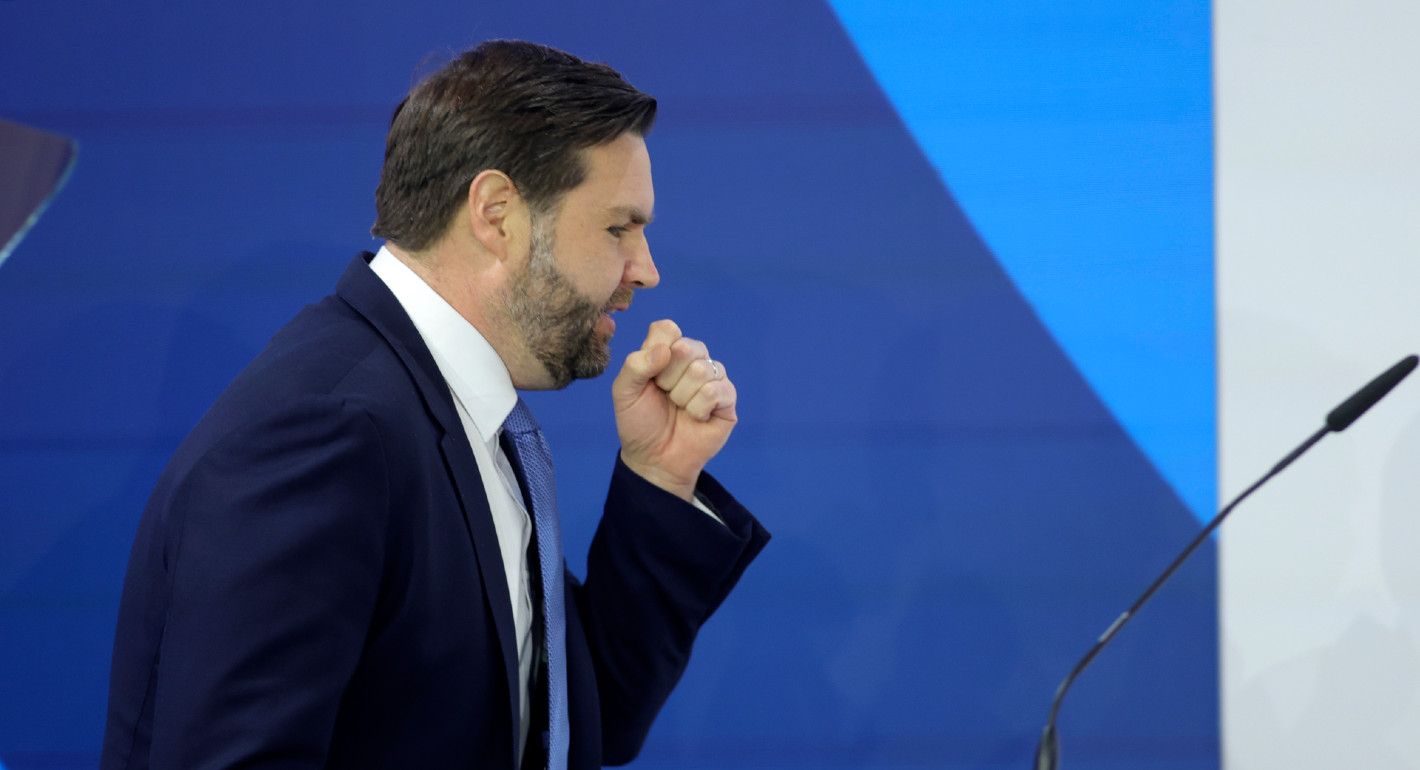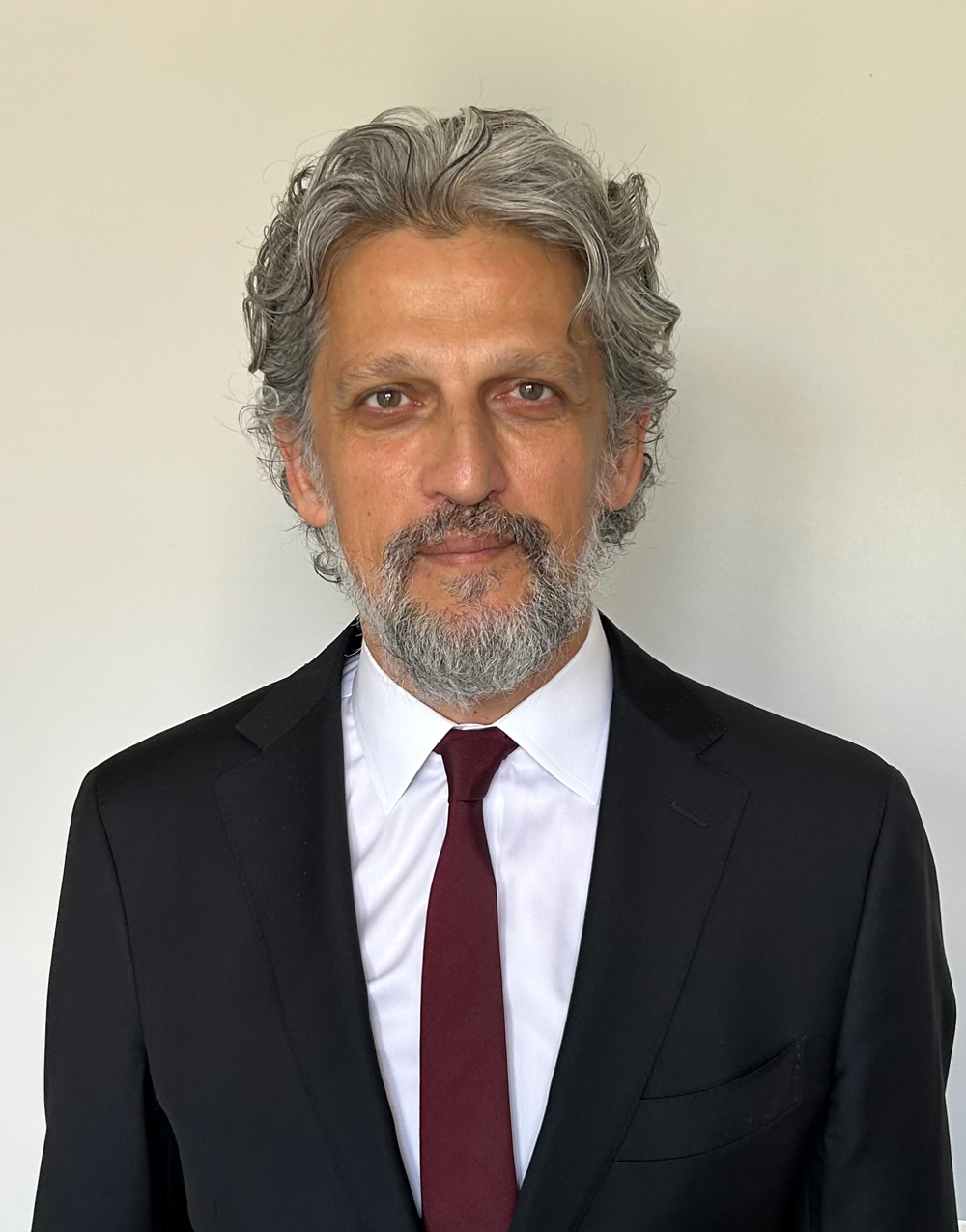An Armenia-Azerbaijan settlement may be the only realistic test case for making glossy promises a reality.
Garo Paylan
{
"authors": [
"Sophia Besch",
"Tara Varma"
],
"type": "commentary",
"blog": "Emissary",
"centerAffiliationAll": "dc",
"centers": [
"Carnegie Endowment for International Peace"
],
"collections": [
"Transatlantic Cooperation"
],
"englishNewsletterAll": "",
"nonEnglishNewsletterAll": "",
"primaryCenter": "Carnegie Endowment for International Peace",
"programAffiliation": "EP",
"programs": [
"Europe"
],
"projects": [],
"regions": [],
"topics": []
}
U.S. Vice President JD Vance speaks at the Munich Security Conference, February 14, 2025.
Far-right European nationalism has powerful new allies in the Trump administration.
A version of this piece was published by Le Monde on February 17, 2025.
On Friday at the Munich Security Conference, U.S. Vice President JD Vance delivered a speech that challenged the traditional pillars of the transatlantic relationship. He argued that the true threat to Europe stemmed not from external actors, but rather from what he claimed was Europe’s failure to listen to the populist concerns of voters. His words are further proof that the transatlantic alliance and indeed the European project are under siege from within, from leaders and movements bent on revising the world order to serve their own agendas.
For over seventy-five years, the transatlantic relationship, upheld by NATO and various EU-U.S. dialogue forums, has been a cornerstone of liberal democracy and open societies. However, the rise of revisionist, far-right parties in Europe, alongside the reelection of Donald Trump, signals a shift toward a new transatlantic alliance—one that could reshape or even unravel the European project itself.
Trump’s open disdain for the EU and NATO during his first term as president, and again during the 2024 presidential campaign, has set the stage for a radical shift in U.S. foreign policy. His views chime with those of influential figures in the “Make America Great Again” (MAGA) camp, including technology moguls who, buoyed by Trump’s electoral triumphs, are now intent on unraveling the European Union’s regulatory and fiscal strictures—measures they see as a thorn in the side of their enterprises.
Their rise has encouraged and emboldened a cohort of European leaders who are eager to curtail the EU’s reach into their domestic spheres. These leaders advocate a return to a nationalism that eschews supranational oversight in matters of energy, migration, digital platform regulation, and defense, championing a more insular sovereignty and challenging the very institutions that have supported Europe’s postwar stability and growth.
European nationalists—whether they are in power already, like Hungary’s Viktor Orbán and Italy’s Giorgia Meloni, or campaigning to take over, like Germany’s Alice Weidel and France’s Éric Zemmour—have found a powerful ally in Trump. Their shared ideology threatens to dismantle the long-standing alliances between Europe and the United States and reshape them into a series of transactional relationships that prioritize individual gain over collective security and prosperity.
Far-right politicians on both sides of the Atlantic benefit from this new revisionist partnership, based on a mutual disdain of the “threat from within”—which, more often than not, they locate in Brussels. European far-right parties have in the past been sensitive to the idea of U.S. influence over European populist movements, wary of the idea of being controlled by America. Not so today. European revisionists not only benefit not from the legitimacy provided by their connections to the U.S. MAGA election winners; they also hope to leverage the fact that their U.S. counterparts control large parts of the attention economy through social media. Prominent and influential members of the MAGA movement have pledged explicit support in bringing them to power. Elon Musk, in particular, has been active in disrupting political processes in countries like the UK and Germany. Vance, in Munich, is now doing the same.
Meanwhile, in exchange for preferential treatment from their U.S. counterparts, EU revisionists can offer either to veto proposals in Brussels or to exert pressure on their national governments to do so—whether it’s the EU’s green reporting rules or its Digital Services Act.
The consequences are profound. The EU is under threat. The union was able to increase its regulatory reach over Europe only with the tacit acquiescence and under the security umbrella of the United States. Now European dissidents, bolstered by America’s MAGA cohort, challenge the union’s authority and threaten to unravel the very fabric of the European project.
This new alliance of transatlantic revisionists may maintain a facade of cooperation but won't be bound by the solidarity once considered the bedrock of NATO and EU-U.S. relations. Trump does not believe in alliances; he believes in expanding his reach and power. While he is often labelled as transactional by observers, in reality he wields extortionist threats to cement asymmetric relationships, where he must have the upper hand.
The American MAGA agenda aims at turning Europe into a vassalized market where tech and climate regulations lose their effectiveness under the threat of economic coercion, and where true strategic autonomy—the ability to act independently—becomes a pipe dream. European nationalists should abhor the idea of doing America’s bidding, but for now, they seem unbothered.
Those who care about the union’s survival as a political project must stand firm against the rising tide of nationalism and revisionism and stand up to the bully across the Atlantic. They must strengthen their resolve to uphold the values and principles that have allowed the EU to thrive, even in the face of flailing American support. As German defense minister Boris Pistorius poignantly noted in his passionate response to Vance in Munich: “Democracy must be able to defend itself against the extremists who want to destroy it.”
Carnegie does not take institutional positions on public policy issues; the views represented herein are those of the author(s) and do not necessarily reflect the views of Carnegie, its staff, or its trustees.
An Armenia-Azerbaijan settlement may be the only realistic test case for making glossy promises a reality.

Garo Paylan
They cannot return to the comforts of asymmetric reliance, dressed up as partnership.

Sophia Besch
With its second Zeitenwende, Berlin could become a global counterweight to Washington.

Sophia Besch
Ramping up the Joint Expeditionary Force would contribute to European security and prepare the continent for a second Trump administration.


Dan Baer, Sophia Besch
It must work together to prevent the worst for Ukraine, NATO, and the European project.


Sophia Besch, Liana Fix